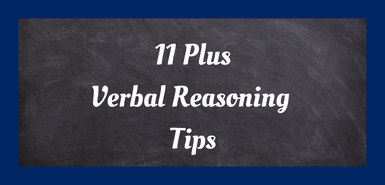Nevertheless, your child can still learn how to approach these questions and work out the correct answer. In addition to learning specific techniques for each question type, there are extra activities you can practise and skills and knowledge that your child should develop.
Here are some ideas:
1. Make sure your child knows as many synonyms (words that have the same or nearly the same meaning) and antonyms (words that mean the opposite) for common words as possible. I would suggest that you have an exercise book or notebook where you can create lists. Have quiz sessions where you give a word and then ask your child to give as many synonyms as they can think of for that word and then at least one antonym.
2. Anagrams: Buy some puzzle books that contain anagrams, or find worksheets or quizzes online that have anagrams in them. Get your child to practise ticking or marking off each letter as they use them to make the word. You can even make your own anagram quizzes and then time your child to see how quickly they can solve all of them.
3. Crossword puzzles: Try buying some crossword puzzle books that are aimed at children (they needn’t be expensive) and encourage your child to spend some time trying to solve the crossword. These vocabulary and spelling based puzzles help build skills that are tested in the eleven plus. You can also find crosswords for children online, either as online games or printables (Printables can be downloaded and completed on paper or you could use a PDF or other document editor and have your child do them online.)
4. Word Searches: Again, you can find these online or you can buy books. Word searches are great ways to practise finding hidden words and helps to develop your child’s observational and scanning skills in a fun and informal way.
5. Alphabetical order: Make sure your child knows the alphabet really well.. Have your child know some basics about the position of letters in the alphabet. For example, the middle letter of the alphabet is M. Give them a letter of the alphabet and ask them which letter comes next and which letter comes before. Once they are confident doing that, give them a letter and ask them which letter comes 2, 3, 5 or whatever number of letters before or after the given letter. Make sure that your child can put words that begin with the same letter or same beginning letters into alphabetical order. Start by giving them five words that all start with the same letter. When they are confident doing that, go on to giving them five words that all begin with the same two letters. For example: WH. You can then try five words that all begin with the same three letters: For example: SHE.
To practise word puzzles, check out my new puzzle page at www.topmarkseducation.co.uk/Resources/Puzzles.
I have designed some themed activities that are perfect for eleven plus students. I will add more puzzles over the next few weeks and months.
Let me know in the comments section how you get on with these activities.

Comments
Post a Comment